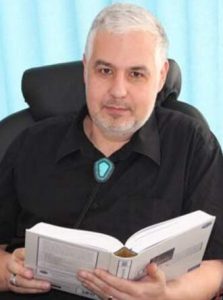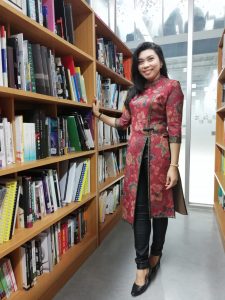
Prof. Herwig Unger
Title: Text-representing Centroids: Context Condensed in a Nutshell
Bio:
Prof. Dr.-Ing. habil. Herwig Unger received his PhD with a work on Petri Net transformation in 1994 from the Technical University of Ilmenau and his doctorate (habilitation) with a work on large distributed systems from the University of Rostock in 2000. Since 2006, he is a full professor at the FernUniversität in Hagen and the head of the Chair of Communication Networks. His research interests are in decentralized systems and self-organization,natural language processing, as well as large scale simulations. He has published more than 140 publications in refereed journals and conferences, published or edited more than 25 books and gave over 35 invited talks and lectures in 12 countries.
Abstract:
Pure keyword-based searches may generate (beside the wanted) a plenty of senseless results. This is caused by the primitive brute-force search algorithms of most centralized search engines, simply considering whether the query terms occur in a document and not taking the context and/or the topic category characterized by them into account.
In this talk, text-representing as well as evolving centroids are introduced as alternative to the method described. By projecting a set of words onto a single term depending on the relation/distances among words, fully automised categorizations of queries and documents can be achieved, which are better matchable later – although they do not always follow the semantic understanding of humans. Besides making contexts of words and documents comparable, some other properties of centroids interesting for natural language processing will be introduced.
In the talk’s second part, text-representing centroids as well as peer-to-peer system principles are presented as the two major concepts to realize the first fully integrated decentralized search engine. It will be shown that this approach does not only generate user-centric, i.e. depending on the users’ knowledge, search results, but also allows better protection of user privacy and data ownership. After a short demonstration of the new search engine’s abilities, some other possible applications of centroids, e.g. in medical recommender systems, will be discussed.

Prof. Waralak Vongdoiwang Siricharoen
Title: The Effects of Virtual Reality on Social Isolation
Bio:
Waralak Vongdoiwang Siricharoen is lecturer and senior researcher of Faculty of Information Communication and Technology, Silpakorn University, Thailand. She received her master degree in Business Administration with Computer Information Systems Certificate in 1999 from University of Southern New Hampshire, NH, USA. And she received her Doctoral Degree of Technical Science in 2005 from Asian Institute of Technology (AIT), Thailand. Her works focus on ontologies engineering for non-experts, human computer interaction and infographic evaluation. Her works have been reported in peer-reviewed papers published in international journals, conference proceedings, and books. Her research area specialists are ontologies, database technology, software engineering, object oriented, human computer interaction, infographics, etc. She received the researches and development grants worth more than 1,000,000 baht from University of the Thai Chamber of Commerce (UTCC). Also now she is supervising bachelor, master, and PhD students. She has several published books, journals and conference proceedings papers. Also now she is acting as Editor-in-Chief of the International Journal of E-Entrepreneurship and Innovation (IJEEI); the editor of academic journals; reviewer of several conferences; general chair of international conferences; invited, keynote speaker, and master of ceremony in the international conferences and events
Abstract:
The emergence of Virtuality technology will bring new possibilities for human interaction. Therefore, the combination of these technologies with social networks seem obvious. VR is now changing human interaction and allow individuals to surpass physical limitations and connect in a space where changes of one’s self‐representation and surroundings are free. VR are predictable to give a massive impact on daily life. the immersive technologies could lead to loneliness and isolation. Social interaction involves the cautious evaluation of the performs of day-to day communicating of human in numerous real-life contexts. Such as human-human relationship and human-computer communication. The Video conferencing has become more general in daily life, the fact remains that most workers still need face-to-face meetings. The most significant meetings still need to be arranged in person, sometimes over a meal or drinks. Human need the physical contact, if virtual travel and telepresence will be replacing the physical travel, there will have the system that let human being themselves as the virtual version. The VR technology can urge isolation. it encourages human to connect with technology rather than people. The nature of the human is willing to choose easy interruption. Running away is never the answer. There is high level of concern over the negative influences of interactive VR environments towards social implications. Isolation does not make people idle, but too much can become escaping and make them deteriorate instead of actively pursuing their goals. This talk will clarify some of the important issue about social interaction changes caused by virtual reality in good and unpleasant ways.

Prof. Phayung Meesad
Title: Incremental Learning for Deep Learning in Context-Awareness Data Streaming
Bio:
Phayung Meesad currently is an Associate Professor at the Faculty of Information Technology, King Mongkut’s University of Technology North Bangkok (KMUTNB), Thailand. He also serve as the Dean of the Faculty of Information Technology at KMUTNB. Phayung received Bachelor of Science in Technical Education (Teaching in Electrical Engineering), from KMUTNB in 1994. He received Master of Science (MS) and Doctor of Philosophy (Ph.D.) in Electrical Engineering from School of Electrical and Computer Engineering, Oklahoma State University (OSU), Stillwater, USA, in 1998 and 2002, respectively. His research of interests are Business Intelligence, Computational Intelligence, Artificial Intelligence, Machine Learning, Deep Learning, Data Analytics, Data Science, Data Mining, Digital Signal Processing, Image Processing, Time Series Analysis, and Natural Language Processing. He has been general chair and co-chair of many international conferences. He has published and contributed research in Scopus indexed international conferences and journals more than 80 publications.
Abstract:
Incremental learning is a concept of machine learning algorithm that is capable to learn data online. This makes it possible to learn new data without retrain machine learning with previously learned data. Especially in the era of digital economy, there are data increasing every second become so-called big data, which are the results from users generated like social network data as well as from IoT devices. There are many applications of big data in many domains such as in Science and Engineering. Machine Learning plays an important role to learn and get insight big data. Deep learning is one of the most famous machine learning models working well with big data. Convolutional network (CNN), recurrent neural network (RNN), long short-term memory (LSTM), gated recurrent unit (GRU), and the variants are among the top model in deep learning. These machine learning models learn data offline and take long time to optimize parameters such as weights and biases. When new data are available the machine learning must learn again both old and new data. This talk will be focus on the incremental learning in deep learning networks, which are possible to learn data streaming.

